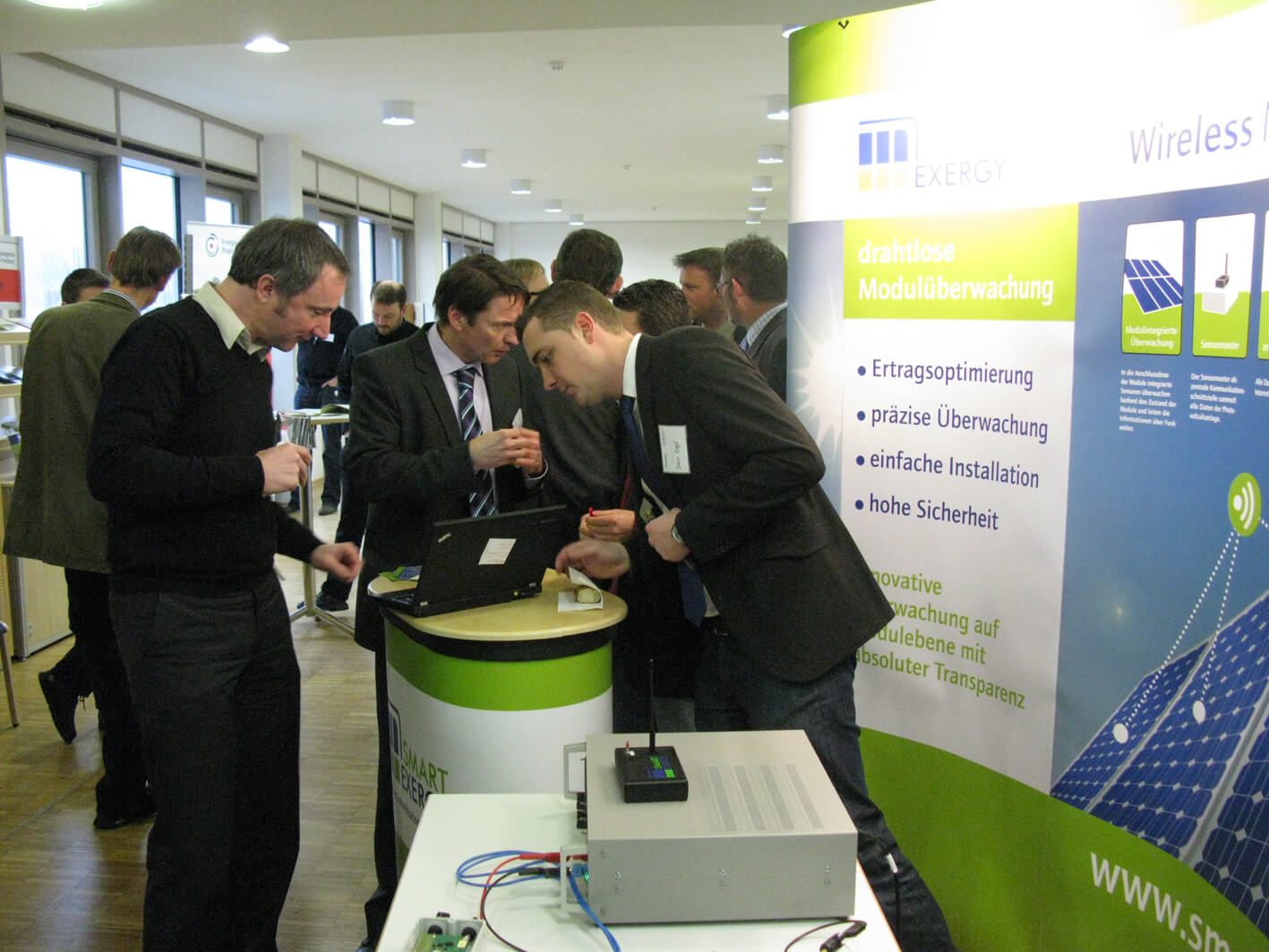Press Release #05
Fire Protection in Photovoltaic Systems – Facts replace Fiction – Results of Expert Workshop
Photovoltaic systems are different, but not more dangerous, than traditional electrical installations. This is the conclusion drawn at a fire protection workshop held on January 24, 2013 by the Fraunhofer Institute for Solar Energy Systems ISE and TÜV Rheinland at the Solar Info Center in Freiburg. The workshop was attended by 120 participants, including manufacturers, researchers, representatives from the fire brigade and insurance companies. They agreed that the best fire protection is the adherence to the existing regulations through qualified skilled workers.

“Every fire is one too many,” says Dr. Heribert Schmidt, project leader at Fraunhofer ISE. “However, if one takes a look at the statistics, then 0.006 percent of the photovoltaic systems caused a fire resulting in large damage.” Currently there are 1.3 million PV systems in Germany. Over the last 20 years, there were 350 fires in which photovoltaic systems were involved. In 120 of these cases, the photovoltaic system was the cause of the fire. In 75 cases, the damage was large and in 10 cases, the entire building was burned to the ground.
Since February 2011, experts are working on a project sponsored by the German Federal Ministry for the Environment in which the fire risk associated with photovoltaic systems is analyzed. The experts are to determine whether the existing, well-proven standards and safety concepts should be supplemented. The most important characteristic of photovoltaic systems is that they produce direct current. One cannot simply switch the power off, since the system continues to generate electricity as long as sunlight is incident on the modules.
For example, if a module connector that is of low quality or poorly installed loosens, then the current flow is not always interrupted. An electric arc may occur, which, in the worst case, can directly start a fire. Accordingly, investigations are being carried out on how to prohibit the occurrence of electric arcs. In addition, detectors are being developed that sound alarm as soon as only a small electric arc occurs.
Representatives from insurance companies, technicians and the fire brigade agreed that compared to other technical systems, photovoltaic systems do not present a higher fire risk. With comprehensive training courses for the fire brigade, any preliminary uncertainties could be conquered. As with every electrical installation, one can also extinguish a fire using water from a distance of one to five meters, depending on the type of electric arc. Based on the investigations to date, all of the claims stating that the fire brigade could not extinguish a house fire because of the photovoltaic system have been shown to be false.
There are sufficient codes in place that ensure the electrical safety for photovoltaic systems. Key is adherence to the codes. Fires often start when inexperienced installation crews install the system. When the solar module connectors are installed using combination pliers instead of with special tools designed for this purpose or when incompatible connectors are used, then the system vulnerability is pre-programmed. The system operators should not cut costs in the wrong place.
Therefore, besides technical improvements, control regulations are also investigated in this project which continues to January 2014. At present, the system installer can himself confirm that the installation was carried out according to the rules. One recommendation from the experts, therefore, is to require that the acceptance test be performed by a third party. A compulsory safety test carried out regularly for privately-owned photovoltaic systems is also in discussion. For commercial systems, a safety test whereby the solar system must be brought periodically to inspection every four years is already mandatory.
More information about fire protection (in German) can be found at www.pv-brandsicherheit.de
Last modified: